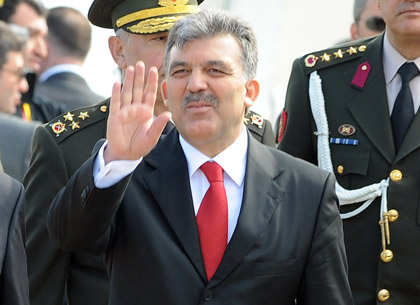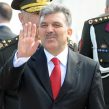
Gul’s Visit to Baghdad: A Sign of Rapprochement With The Kurds?
Publication: Eurasia Daily Monitor Volume: 6 Issue: 56
By:

Turkey’s President Abdullah Gul arrived in Iraq on March 23, becoming the first Turkish president to visit the country in 33 years, where he was warmly welcomed by Iraq’s President Jalal Talabani. Gul’s visit to Iraq was originally scheduled for December 20, 2008 but a chronic ear infection resulted in its postponement. Speculation had mounted over the past three months that he might use the opportunity to make a symbolic visit to Arbil, the capital of the Kurdistan Regional Government (KRG) (Sabah, December 15).
Despite the fact that Gul and Turkey’s Foreign Ministry wanted to include five other Iraqi cities (Najaf, Basra, Kikuk, Mosul and Arbi) in the itinerary, due to security concerns this was restricted to Baghdad (Radikal, March 24). It was expected that Mesut Barzani, the president of the KRG, would meet Gul during the state visit, but this was cancelled due to Barzani’s quarrel with the Iraqi Prime Minister Nuri Al Maliki, Barzani (Sabah, March 24).
Gul’s three month delayed trip to Baghdad proved especially significant for fostering rapprochement between Iraqi Kurds and Turkey. In fact, while en route to Tehran ten days earlier, Gul signaled that there might be important developments regarding the Kurdish question (EDM, March 17). Although Gul and Barzani failed to meet in Baghdad, the Kurdish question still dominated the Turkish delegation’s discussions with Iraqi authorities. Following his earlier statement about possible new initiatives in relation to the Kurdish question, Gul used the word "Kurdistan" when referring to the KRG. It is the first time in Turkey’s history that the country’s president has used the word "Kurdistan" to refer to a region inside Iraq (Hurriyet, March 24). Perhaps Gul wanted to show the readiness of the Turkish government to take a fresh approach towards the Kurds, which has long been denied in Turkey. The Turkish media widely welcomed the use of the word, underlining a departure from Turkey’s decade old policy of denial toward Kurds in the region. Gul further emphasized that "Iraqi Kurds have clearly seen what winning or losing Turkey’s support would mean and that it is the PKK terror that upsets ties with Ankara" (Hurriyet Daily News, March 24).
In response to Gul’s request for better cooperation between the KRG and Turkey, President Talabani clearly stressed that the removal of the rebel Kurdistan Workers’ Party, or PKK, was also in Iraq’s interests and challenged the PKK: "Either they will lay down arms or they will leave our territory" (Taraf, March 24). In fact, it is not the first time Talabani has made such an appeal. On March 16 at the World Water Forum in Istanbul, Talabani raised the issue saying that the armed struggle is over and the PKK should end its attacks against Turkish soldiers (EDM, March 17). Rebuffing Talabani’s call to abandon violence, the PKK issued a press statement accusing him of being "irresponsible" and dismissing his call to lay down their arms as "meaningless" and having "no value" (www.rojaciwan.com, March 23).
Despite Gul’s visit to Baghdad once again declaring Turkey’s shift in its policies towards the Kurds in the region, the discussions were not limited to the Kurdish question and the disruption of the PKK’s attacks. The Turkish and Iraqi delegations also explored increases in the production of natural gas and petroleum from Iraqi energy fields and their transportation through Turkey (Anadolu Ajansi, March 23). Consequently, Gul indicated that the Turkish and Iraqi authorities agreed to work on energy production and cooperate closely in the future on energy issues (Zaman, March 24). The detail of the reports within the Turkish media suggests that the bilateral energy agreement is particularly linked to new investments in the territory of the KRG. Gul stated that "the reflection of the visit will be seen on the field. It is on our agenda to explore additional petroleum and gas fields [Kurdish region] and new pipelines would be built (Radikal, March 24). In addition, an economic cooperation agreement was signed projecting an increase in annual trade between the two countries from $5 billion to $20 billion within two years (Zaman, March 24).
Gul’s visit to Baghdad may bring potential economic benefits, but this remains to be seen. However, in the meantime he has reopened the debate as to whether it will be possible to resolve Turkey’s Kurdish question. Throughout the last thirty years many promises have been made but an effective solution has proven elusive. One of the reasons why Turkey has struggled to find a solution to PKK terrorism within its territory lies in its stubborn adherence to policies denying the existence of Kurdish identity, culture, and language. This time, however, Gul has taken unexpected steps towards not only recognizing Kurdish identity, language and culture, but possibly accepting a territory as "Kurdistan." Now it is up to the Kurdish minority to find an effective strategy to stop the PKK’s violence, or at least prevent it from using their territory as a base to launch attacks against Turkey.




